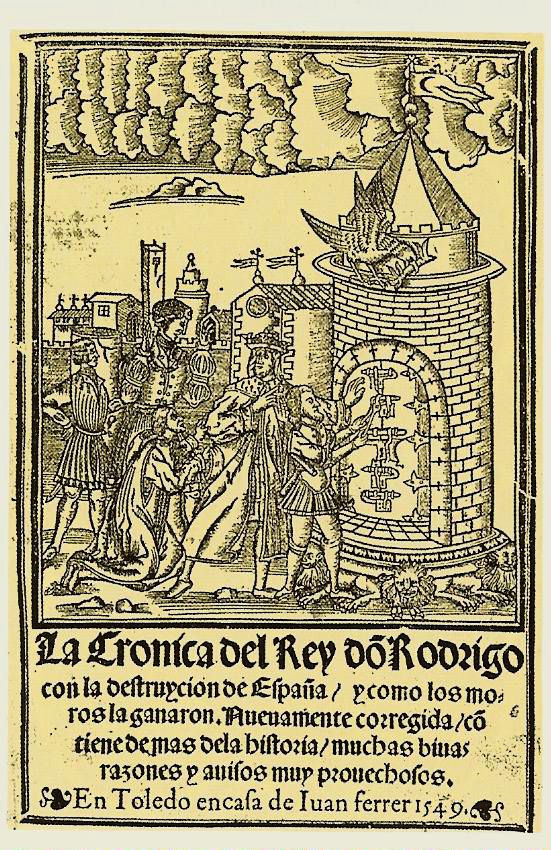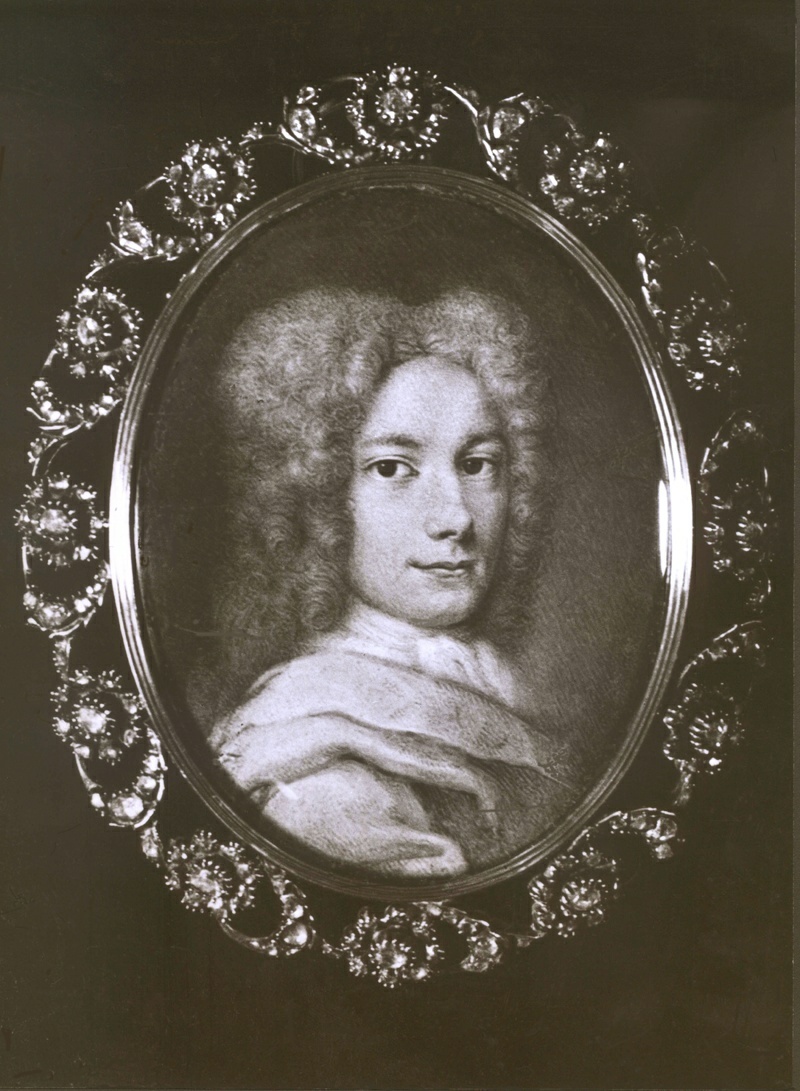Rodrigo (opera) on:
[Wikipedia]
[Google]
[Amazon]
 ''Rodrigo'' ( HWV 5) is an
''Rodrigo'' ( HWV 5) is an

Italian libretto
* {{Authority control Operas by George Frideric Handel Italian-language operas 1707 operas Operas
 ''Rodrigo'' ( HWV 5) is an
''Rodrigo'' ( HWV 5) is an opera
Opera is a form of theatre in which music is a fundamental component and dramatic roles are taken by singers. Such a "work" (the literal translation of the Italian word "opera") is typically a collaboration between a composer and a librett ...
in three acts composed by George Frideric Handel
George Frideric (or Frederick) Handel (; baptised , ; 23 February 1685 – 14 April 1759) was a German-British Baroque music, Baroque composer well known for his opera#Baroque era, operas, oratorios, anthems, concerto grosso, concerti grossi, ...
. Its original title was ''Vincer se stesso è la maggior vittoria'' ("To overcome oneself is the greater victory"). The opera is based on the historical figure of Rodrigo
Rodrigo is a Spanish, Portuguese and Italian name derived from the Germanic name ''Roderick'' (Gothic ''*Hroþareiks'', via Latinized ''Rodericus'' or ''Rudericus''), given specifically in reference to either King Roderic (d. 712), the last Vis ...
, the last Visigothic king of Spain
, image_flag = Bandera de España.svg
, image_coat = Escudo de España (mazonado).svg
, national_motto = ''Plus ultra'' (Latin)(English: "Further Beyond")
, national_anthem = (English: "Royal March")
, i ...
. The libretto was based on Francesco Silvani's ''II duello d'Amore e di Vendetta'' ("The conflict between love and revenge"). Dating from 1707, it was Handel's first opera written for performance in Italy, and the first performance took place in Florence
Florence ( ; it, Firenze ) is a city in Central Italy and the capital city of the Tuscany region. It is the most populated city in Tuscany, with 383,083 inhabitants in 2016, and over 1,520,000 in its metropolitan area.Bilancio demografico an ...
late in 1707.
The opera was revived in 1984, in Innsbruck
Innsbruck (; bar, Innschbruck, label=Bavarian language, Austro-Bavarian ) is the capital of Tyrol (state), Tyrol and the List of cities and towns in Austria, fifth-largest city in Austria. On the Inn (river), River Inn, at its junction with the ...
. A lost fragment from Act III had been found in 1983, and a more complete production was given by the Handel Opera Society under Charles Farncombe at Sadler's Wells Theatre in London in 1985. Among other performances, ''Rodrigo'' was staged in Karlsruhe
Karlsruhe ( , , ; South Franconian: ''Kallsruh'') is the third-largest city of the German state (''Land'') of Baden-Württemberg after its capital of Stuttgart and Mannheim, and the 22nd-largest city in the nation, with 308,436 inhabitants. ...
in 1987, by the Handel Festival, Halle
The Handel Festival (in German: Händel-Festspiele) in Halle an der Saale, Saxony-Anhalt, is an international music festival concentrating on the music of George Frideric Handel in the composer's birthplace. It was founded in 1922 and it grew into ...
in 2002 and by the International Festival of Baroque and Romantic Opera, Beaune
Beaune () is the wine capital of Burgundy in the Côte d'Or department in eastern France. It is located between Lyon and Dijon. Beaune is one of the key wine centers in France, and the center of Burgundy wine production and business. The annua ...
, France, in 2018.
Roles
Synopsis

Prologue
Prior to the start of the opera, Rodrigo had deposed the previous king, Vitizza, who was corrupt, but then Rodrigo indulged in the same vices after he had become king. One example was his seduction of Florinda, who bore his son as a result. Rodrigo had intended to leave his wife Esilena, who was reportedly infertile, and marry Florinda. However, Rodrigo has not kept this promise.Act 1
The start of the opera brings news that Giuliano has defeated the sons of Vitizza in battle. In spite of her husband's betrayal, Esilena stays loyal to Rodrigo. Rodrigo demands that Evanco, the last surviving son of Vitizza, be executed. However, Esilena asks that Evanco be spared, and he is turned over to the custody of Giuliano. Giuliano learns of Rodrigo's broken promise to Florinda, and abandons his former support of Rodrigo to make an alliance with Evanco. Evanco is himself in love with Florinda. Rodrigo tells Esilena of his infidelity with Florinda. Esilena is prepared to renounce the throne to Florinda if it will bring peace.Act 2
At the military camp, Giuliano promises Evanco the throne if he will marry Florinda. Fernando has secretly offered his help to Giuliano against Rodrigo. Giuliano accepts the offer, in spite of warnings. Esilena offers to surrender her throne and husband to Florinda in exchange for peace. Florinda refuses, determined to have vengeance for Rodrigo's betrayal. Fernando has captured Giuliano and taken him to Rodrigo. Rodrigo wants Giuliano executed, but Fernando and Esilena halt that intention for fear of stoking the rebellion. Rodrigo conveys through Fernando the message to Evanco that the only way he will be pardoned is to surrender himself. The only way that Florinda can save her brother is to leave the kingdom. The army of Evanco then attacks and breaches the city. As they enter, they see Giuliano surrounded by Rodrigo's soldiers with Fernando about to kill him. Fernando presents Rodrigo's message, but it is refused. Evanco then kills Fernando and saves Giuliano.Act 3
The forces of Rodrigo battle those of Giuliano and Evanco, and Rodrigo is defeated and captured. As Giuliano and Evanco are about to execute Rodrigo, Florinda demands that task for herself. Before she can kill Rodrigo, Esilena enters with Florinda's son, and says that if Florinda wants to kill the father, she should kill the son as well. This stops Florinda, who then offers to spare Rodrigo. Giuliano and Evanco want none of that, but Esilena persuades them to be charitable as well. Rodrigo has become humbled at this turn of events, and tells Esilena that he may punish him for his infidelity. She does not do so. Rodrigo is allowed to abdicate the throne, and to go into voluntary exile with Esilena. Evanco ascends the throne, and he marries Florinda. They intend to raise Florinda's son by Rodrigo as the heir to the throne. Giuliano becomes regent.Context and analysis
The German-born Handel had worked at the opera house inHamburg
(male), (female) en, Hamburger(s),
Hamburgian(s)
, timezone1 = Central (CET)
, utc_offset1 = +1
, timezone1_DST = Central (CEST)
, utc_offset1_DST = +2
, postal ...
from the age of eighteen, playing the violin and harpsichord and composing several operas, the music of which is lost except for one, ''Almira
''Almira, Königin von Castilien'' ("Almira, Queen of Castile", HWV 1; full title: ''Der in Krohnen erlangte Glücks-Wechsel, oder: Almira, Königin von Castilien'') is George Frideric Handel's first opera, composed when he was 19 years old. I ...
'', which was a success. From 1706 t0 1709 Handel lived and worked in Italy, where he composed several Italian operas, ''Rodrigo
Rodrigo is a Spanish, Portuguese and Italian name derived from the Germanic name ''Roderick'' (Gothic ''*Hroþareiks'', via Latinized ''Rodericus'' or ''Rudericus''), given specifically in reference to either King Roderic (d. 712), the last Vis ...
'' being the first. The combination of Handel's Germanic roots with the Italianate style of music which he absorbed in his early career in Florence, Venice and Rome, created Handel's unique style.
According to John Mainwaring
__NOTOC__
John Mainwaring (1724 – 15 April 1807) was an English theologian and the first biographer of the composer Georg Friedrich Händel in any language. He was a Fellow of St. John's College, Cambridge, and parish priest, and later a prof ...
, Handel's first biographer, ''Rodrigo'' was very popular and he "was presented with 100 sequins, and a service of plate. This may serve for a sufficient testimony of its favourable reception."
The opera is scored for two recorders, two oboes, strings, and continuo (cello, lute, harpsichord).
Recordings
References
Notes Sources *External links
Italian libretto
* {{Authority control Operas by George Frideric Handel Italian-language operas 1707 operas Operas